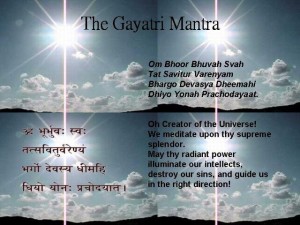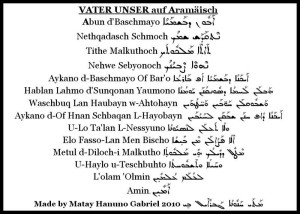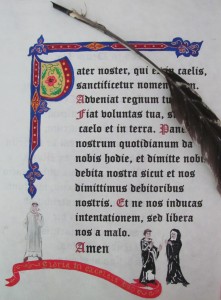The following are Powerful Mantras which we can chant regardless of what belief system we practice. Most of these mantras are Sanskrit in origin while others are Latin, Aramaic and Hebrew. Mantras or prayers whatever language we used have the powerful energy according to the intention of the mystical prayers and what a person think, feel and wish while chanting the mantras.
Om – normally used (placed) at the start of any Hindu text and affirming mantra such as Om Mane Padme Hum, Om Shanti and Om Shreem Hreem Kleem. Om is a mystical Sanskrit sound of Hindu origin. It is sacred and important in different Dharmic religions such as Hinduism, Buddhism, and Jainism. The Om syllable is referred to as ‘omkara’ or ‘aumkara’ and in Sanskrit, it is sometimes referred to as praṇava, literally “that which is sounded out loudly”.
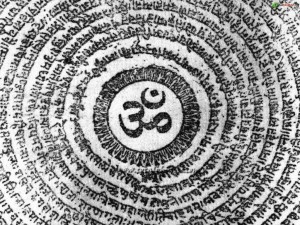 The vibration of “OM” symbolises the manifestation of God in form (“sāguna brahman”). “OM” is the reflection of the absolute reality, it is said to be “Adi Anadi”, without beginning or the end and embracing all that exists. The mantra “OM” is the ‘name of God,’ the vibration of the Supreme. When taken letter by letter, A-U-M represents the divine energy (Shakti) united in its three elementary aspects: Bhrahma Shakti (creation), Vishnu Shakti (preservation) and Shiva Shakti (liberation, and/or destruction).
The vibration of “OM” symbolises the manifestation of God in form (“sāguna brahman”). “OM” is the reflection of the absolute reality, it is said to be “Adi Anadi”, without beginning or the end and embracing all that exists. The mantra “OM” is the ‘name of God,’ the vibration of the Supreme. When taken letter by letter, A-U-M represents the divine energy (Shakti) united in its three elementary aspects: Bhrahma Shakti (creation), Vishnu Shakti (preservation) and Shiva Shakti (liberation, and/or destruction).
Om Mane Padme Hum – a Sanskrit mantra associated with four-armed Shadaksshari form of Avalokiteshvara (Tibetan Chenrezig, Chinese Guanyin), the bodhisattva of compassion. This mantra is commonly carved on rocks also called ‘mani stones,’ or written on paper which inserted into paper wheels. It is normally interpreted with its middle part “mani padme” as ‘jewel in the lotus.’ Mani which means jewel and Padme means lotus.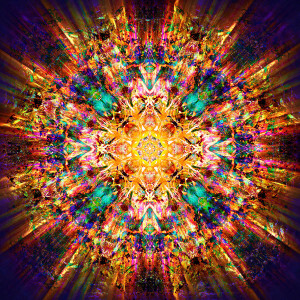
Other interpretation says “Om purifies bliss and pride (realm of the gods); Ma purifies jealousy and need for entertainment (realm of the jealous gods); Ni purifies passion and desire (human realm); Pad purifies ignorance and prejudice (animal realm); Me purifies poverty and possessiveness (realm of the hungry ghosts); Hum purifies aggression and hatred (hell realm).”
Gayatri Mantra – a Sanskrit mantra considered to be the oldest and the “most powerful of all mantras.” If anyone chant this mantra, firmly establish in one’s mind, carry on and to the work that is ordained to you, anyone’s life will be full of happiness. The word Gayatri derived from its Sanskrit phrase, Gayantam Triyate iti, and refers to that mantra which rescues the chanter from all adverse situations that may lead to mortality.
Gayatri Mantra in Hindu belief, is being address to 5-faced, 10-armed Goddess Gayatri, also called “Veda-Mata” or the Mother of the Vedas – Rig, Yajur, Saam and Atharva – because it is the very basis of the Vedas. It is the basis, the reality behind the experienced and the cognized universe. Though the mantra can directly address to God, the Creator of Universe, if the chanter is not a Hindu.
The Lord’s Prayer – also known as “Our Father” or “Pater Noster.” The Lord’s Prayer was introduced by Jesus Christ during his Sermon on the Mount. Scripture gives no indication of the exact location of this event. However, the most informed opinion puts the location for the Mount of Beatitudes between Capernaum and Tabgha and is just above the “Cove of the Sower” and was known as Mt. Eremos.
I strongly recommend this prayer especially during the time of obstacles in life, protection against dark forces and for exorcism.
The Lords Prayer can be recited in Aramaic known as ‘Abun D’Bashmayo,’ in Latin as ‘Pater Noster,’ in English as ‘Our Father,’ and in Filipino as ‘Ama Namin.’
Hare Krishna – A high-vibrational mantra being used by the members and active practitioners of Krishna Consciousness. Hara or Hare refers to God himself which means “He who is All-Attractive” and “He who is the Source of All Pleasure.” In Hindu belief, Rama and Krishna both appear as names of Lord Vishnu and refer primarily to the 7th and 8th Maha Avataras of Vishnu. To dig deeper into the meaning of the mantra, “Hare is interpreted as the vocative of Hari, meaning the Golden One or as the vocative of Hara, a names of Radha, Krishna’s eternal consort or known as Shakti. Rama can also refer to Radha-Raman, another name of Krishna which means beloved of Radha.
Normally among Krishna Mantra practitioners, they use this as salutation to glorify Krishna though while chanting the powerful mantra, it intends to purify the State of Mind to achieve the Krishna Consciousness.
Hare Krishna mantra has a vibration of sound that cleanses the mind, freeing it from anxiety and illusion. And this is a mantra anyone can chant. It’s for people of all religions, all nations, all colors, and both sexes. No need to pay any fees, join any group, or turn your life upside down. Whoever you are, whatever you do, you can try the chanting for yourself and experience its result.
Krishna and His energy are fully present in the sound of the mantra, so even if we don’t know the language or intellectually understand how it works, by coming in touch with Krishna we’ll become happy, and our life will become sublime.
Govinda Jaya Jaya – this is an Indian devotional chant or song practiced by the members of the Krishna Consciousness Movement founded by A.C. Bhaktivedanta Swami Prabhupada. During the chanting or repetition of words, it raises the consciousness of the chanter to a transcendent state. In Vedic belief system, it is an infinite praise to God (Krishna) or the Supreme Lord or Vishnu.
The mantra:
- “Govinda Jaya Jaya
- Gopala Jaya Jaya
- Radha Ramana Hari
- Govinda Jaya Jaya”
The meaning of the chant: ‘Praise be to Lord Govinda, Lord Gopala be praised, All glories to Lord Hari, the husband of Radharani.’
Though it’s literal meaning:
- Govinda (Krishna, the Divine Cowherd), Glory, Glory
- Gopala (Krishna, Finder of cows), Glory, Glory
- Radha Ramana Hari The Divine Mother, spouse of Krishna), Glory, Glory
- Govinda, Victory, Victory
Govinda and Gopāla are both names of Krishna , Gopala symbolized Krishna’s youthful occupation as a cowherd. Lord Hari is another expression of The Supreme Lord, Krishna or Vishnu.
Ana b’Koach – the Ancient Kaballist Prayer composed by Rav Nehunia Ben Hakannah, has been revived by the Kabbalah Centre.
Known as the 42-letter Name of God, the Ana b’Koach is a unique formula built of 42 letters written in seven sentences of six words each. Each of the seven sentences correspond to the seven days of the week, seven specific angels, and to a particular heavenly body. The letters that make up Ana b’Koach are encoded within the first 42 letters of the book of Genesis.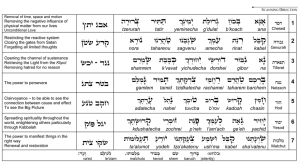
The kabbalists explain that this combination of letters takes us back to the time of Creation, and each time we meditate on a particular sequence, we return to the original uncorrupted energy that built the world. By performing the Ana b’Koach mediation, we enrich our lives with unadulterated spiritual Light and positive energy.
God Bless Us All. Peace. Namaste. Amen
(Note: Mantras are recommended to be chanted 108 times as Ancient Mystics taught. 108 repetitions enhances the mantras’ efficacy. It is believed by chanting 108 times, we are actually saluting the “Order of the Universe” and ‘aligning our intentions with the Divine Will.)
